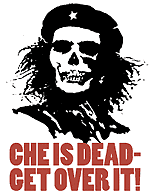February 26, 2006
Reid on Legacies
Senator Harry Reid (D-NV) has a prediction:
"This is an administration that is going to be noted for its incompetence not its accomplishments," Reid, D-Nev., said after a forum on Medicare reforms at the University of Nevada's School of Medicine.
Yes, but what will Democrats be known for? Failure? Obstructionism? Finger pointing and grandstanding?
I'd take an incompetent administration over the inability to carry an election any day.
Reid also delivered this well-worn canard:
"The poor are getting poorer, the rich getting richer, the middle class is being squeezed. And this deals not only with health care, but with everything," Reid told The Associated Press.
That's great for scoring political points with those who don't bother to check facts. But how true is it? Jonah Goldberg addressed this topic in a column a few years ago:
Now, the first thing to keep fresh in your mind is that high income inequality is not the same thing as high poverty. As the Gatesbergia example illustrates, you can have outrageous gaps between the rich and poor and the "poor" will still be OK.
For example, according to Robert Rector, an economist with the Heritage Foundation who uses the government's numbers, the typical person in the poorest fifth of U.S. households today spends as much as the person of average wealth in the early 1970s (adjusted for inflation).
The typical "poor" American, according to census data, has a car, air conditioning, a refrigerator, a stove, a VCR and a color TV. It should go without saying -but usually doesn't -that in, say, 1960, someone who had a color TV, a refrigerator, air conditioning and a car would not be considered poor.
More telling: Child hunger has largely been wiped out as a major social problem in America. While deplorable instances of hungry children still occur (usually attributable to bad parenting), the real nutritional problem we face today is fat kids.
Not only is poverty relative, it has less to do with money than most people think. Technological innovation makes life less expensive. Fifty years ago, a refrigerator was a big investment, even for the middle class. But it was worth it because it made it possible to buy food in bulk.
Today, refrigerators may not be supercheap, but they're affordable. And the cheapest fridge today is far more advanced than a fridge from two decades ago. Ten years ago, a cell phone was a luxury. Today, they're ubiquitous -even in the poorest neighborhoods.
Here's how relative our understanding of poverty is: The average poor person in America is richer than many entire villages in Africa or Asia, where they still have no phones, refrigerators, and very little food.
Rather than predict the lousy legacy of the Bush administration, perhaps Harry Reid would be better off studying economics.
Show Comments »
unfortunately, many of these goods are being purchased with credit cards and other forms of borrowed credit indicating that the buying power of american households hasn't increased, they're just sinking deeper into debt to afford common goods.
also, pointing out the abundance of color televisions compared to the number in existence in 1960 is ridiculous when you think about the technological advancement which has taken place in that 46 year time frame.
Posted by: steve at February 26, 2006 09:53 PM





















